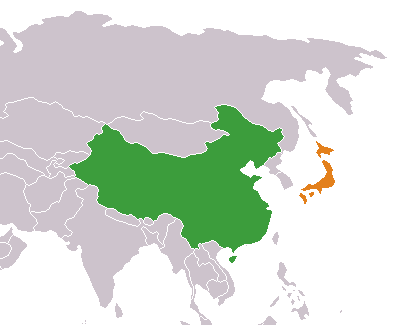


The United States and Japan are the primary two countries that foster software patents, with perhaps a few more on the verge, e.g. Korea (see this recent trade agreement).
VZCZCXRO4870 PP RUEHFK RUEHKSO RUEHNH DE RUEHKO #0617/01 0340831 ZNR UUUUU ZZH P 030831Z FEB 06 FM AMEMBASSY TOKYO TO RUEHC/SECSTATE WASHDC PRIORITY 8244 INFO RUCPDOC/DEPT OF COMMERCE WASHINGTON DC PRIORITY RUEHBJ/AMEMBASSY BEIJING 0390 RUEHGV/USMISSION GENEVA 2747 RUEHKSO/AMCONSUL SAPPORO 5615 RUEHOK/AMCONSUL OSAKA KOBE 7468 RUEHFK/AMCONSUL FUKUOKA 4409 RUEHNH/AMCONSUL NAHA 7056 RUESLE/AMCONSUL SHANGHAI 1972 RUEHGZ/AMCONSUL GUANGZHOU 1179
UNCLAS SECTION 01 OF 02 TOKYO 000617
SIPDIS
SIPDIS
STATE for EAP/J, EAP/EP, EB/TPP/MTA/IP USDOC for DAS HLevine
E.O. 12958: N/A TAGS: KIPRââ¬â°[Intellectual Property Rights], ECONââ¬â°[Economic Conditions], ETRDââ¬â°[Foreign Trade], JP SUBJECT: JAPANESE IPR ASSOCIATION FOCUSSED ON CHINA AND PATENTS
ۦ1. SUMMARY: The Japan Intellectual Property Association (JIPA) is concentrating its international efforts on: 1) combating Chinese counterfeits of Japanese products and 2) promoting an international mutual recognition system for patent searches, according to Secretary-General Hideo Doi in a recent meeting with EconOff. In China JIPA is running several training programs aimed at Chinese Customs, Trademark, and Patent officials, and is compiling a database of people convicted of IPR crimes in China for the use of the Chinese government. End Summary
ۦ2. BACKGROUND: The Japan Intellectual Property Association (JIPA) considers itself the world's largest IPR industry organization with over a thousand members representing large and medium chemical, electronics, and manufacturing firms in Japan. Among its international outreach programs, JIPA offers training in China, Taiwan, Thailand, and Korea. The current JIPA president Naoto Kuji comes from Honda, (which has been concerned about counterfeit auto parts in China) and will be replaced this year by Kazuo Kamisugi of Wako Chemicals, a chemical and pharmaceutical manufacturer.
JIPA Activities in China
ۦ3. JIPA has shifted its strategy in China to what Doi called a carrot and stick approach because it realized that just demanding that China improve its IPR environment was counter-productive. Therefore, JIPA, working closely with the Japanese government (MOFA, METI, JETRO), has developed a broad program to work with Chinese officials to improve IPR enforcement including:
(a) Training Customs Officials to distinguish between authentic and fake goods. JIPA also helped compile a how- to manual for the training.
(b) Training Trademark Bureau officials on how to combat trademark infringements. In early 2006, JIPA also plans a study session with the Trademark Bureau to address the issue of unclear standards for determining trademark infringements. (Doi explained that Chinese manufacturers are producing numerous fakes using look-alike or sound- alike brands, e.g. Hongda, instead of Honda.)
(c) Training Chinese Patent Office examiners to improve their skills and knowledge. JIPA provided technical training on patents for advanced technology in both automobiles and electronics in 2005. JIPA's goal is to improve the quality of patent examination in China as the Chinese government rapidly increases the number of patent examiners to correspond to the increased number of patent applications filed in China.
(d) Compiling a database of names of people who have been convicted of IPR crimes by various security agencies in China. Doi observed that IPR criminals tend to repeat their crimes, so JIPA decided to provide the Chinese government with a comprehensive database that could be shared by different Chinese government agencies.
Japanese firms concerns
ۦ4. Japanese firms in China have been most concerned with counterfeiting of industrial products such as automobile parts, home electronics/appliances, and industrial equipment. Doi also noted that a couple of years ago most Japanese companies did not think it was worth the expense to file a law suit for IPR infringement because of the ineffectiveness of the Chinese courts, but that now more Japanese companies are willing to file suits and go to court.
ۦ5. Doi added that JIPA and its members have been working closely with the US Embassy and the American Chamber of Commerce in Beijing because their concerns and approaches are very similar.
Rooting for a "Global Patent System"
TOKYO 00000617 002 OF 002
ۦ6. JIPA strongly supports the Trilateral Initiative -- which he referred to as a "Global Patent System" -- of the Japan Patent Office (JPO), US Patent Office (USPTO) and the EU Patent Office (EUPO) to establish a system of sharing examination results so that a patent applicant could use the examination results from one patent office to petition for expedited processing in another office. He noted that similar discussions were taking place within WIPO but were going nowhere because of the huge differences in approach and capabilities.
SCHIEFFER